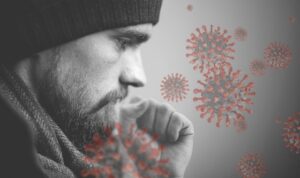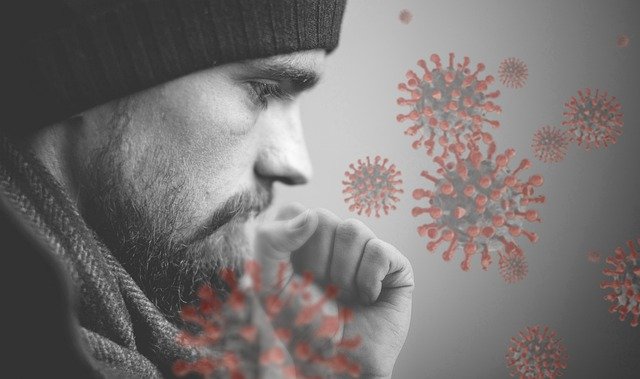
Pneumonia is an infection of the lungs. The most frequent causes of pneumonia are bacteria and viruses. Fungi might induce pneumonia, as well.
Inflammation in the air sacs of the lungs causes because by infection. This leads to a build-up of fluid in the lungs, making breathing difficult.
Pneumonia can be life-threatening, especially to young children and older adults.
What causes pneumonia?
There are many different causes of pneumonia. The most common cause is an infection, which can be caused by bacteria, viruses, or fungi.
Infections can occur after a cold or the flu.
Pneumonia can also be caused by inhaling food, vomit, or other objects into the lungs. Smoking and exposure to certain chemicals can also lead to pneumonia.
How does pneumonia affect the body?
Pneumonia can affect the body in many ways.
The most common symptom is difficulty breathing, which can be caused by the build-up of fluid in the lungs. Other symptoms include coughing, chest pain, fever, and rapid breathing.
Pneumonia can also lead to other health problems, such as sepsis, a serious infection that can lead to death.
Young children and older adults are at the highest risk for health complications from pneumonia.
Is pneumonia contagious?
Yes, pneumonia is contagious.
It can be spread through coughing and sneezing. It can also be spread through contact with vomit or other objects that have been contaminated with the pneumonia virus or bacteria.
People with pneumonia should stay away from others until they have been treated and are no longer contagious.
How is pneumonia treated?
Pneumonia is typically treated with antibiotics.
If the infection is caused by a virus, antibiotics may not be effective.
In these cases, antiviral medications may be prescribed. Other treatments include rest, fluids, and oxygen therapy, if necessary.
Young children and older adults are often hospitalized for treatment of pneumonia.
Can pneumonia be prevented?
Yes, pneumonia can be prevented.
The best way to prevent pneumonia is to get vaccinated against the flu and pneumococcal pneumonia. Vaccines are available for both adults and children.
Other ways to prevent pneumonia include washing your hands regularly, avoiding contact with sick people, and quitting smoking.
How long does it take to recover from pneumonia?
Recovery time varies depending on the cause of pneumonia and the severity of the infection.
Most people start to feel better within a few days of starting treatment. However, it can take several weeks for a full recovery. Young children and older adults often require hospitalization and longer periods of recovery.
Pneumonia is a serious infection that can affect the body in many ways.
The most common symptom is difficulty breathing, which can be caused by the build-up of fluid in the lungs. Other symptoms include coughing, chest pain, fever, and rapid breathing.
Can pneumonia go away on its own?
In most cases, pneumonia will go away on its own with proper treatment. However, in some cases, the infection can be fatal. Young children and older adults are at the highest risk for health complications from pneumonia.
If you are experiencing difficulty breathing or other symptoms of pneumonia, see a doctor right away for diagnosis and treatment.
How long can a person survive with pneumonia?
Pneumonia can be a life-threatening infection. However, with proper treatment, most people will recover.
Young children and older adults are at the highest risk for health complications from pneumonia. If you are experiencing difficulty breathing or other symptoms of pneumonia, see a doctor right away for diagnosis and treatment.
What are the stages of pneumonia?
There are three stages of pneumonia: Mild, moderate, and severe.
- Mild pneumonia is the least serious stage and generally causes few or no symptoms.
- Moderate pneumonia causes more serious symptoms and may require hospitalization.
- Severe pneumonia is the most serious stage and can be life-threatening. It can cause respiratory failure, sepsis, and other health complications.
Young children and older adults are at the highest risk for health complications from pneumonia.
The signs of pneumonia can
The signs of pneumonia can vary depending on the person and the severity of the infection.
In general, common symptoms of pneumonia include:
- Difficulty breathing
- Coughing
- Chest pain
- Fever
- Rapid breathing
If you are experiencing any of these symptoms, see a doctor right away for diagnosis and treatment.
What are the risk factors?
The risk factors for pneumonia vary depending on the person.
Some of the most common risk factors include age (young children and older adults are at the highest risk), smoking, being in contact with sick people, and having a weakened immune system.
- Read also: What are the consequences of having a high eosinophil count
- Read also: What Happens When Your Oxygen Level Drops Too Low
Pneumonia Diagnosis and Treatment
Your doctor will start by asking you about your symptoms and medical histories, such as whether you smoke and if you’ve been around people who are ill at home, school, or work.
They’ll then listen to your lungs. When you breathe in, they may hear cracking, bubbling, or rumbling noises if you have pneumonia.
Your doctor may also order a chest X-ray, which can help to confirm the diagnosis and determine the severity of the infection.
In some cases, your doctor may order other tests, such as a sputum culture or blood tests, to help identify the cause of pneumonia and determine the best treatment.
Pneumonia treatment
Pneumonia is treated with antibiotics and other medications, such as bronchodilators for wheezing, pain relievers, and fluids to help with hydration. In severe cases, you may require hospitalization for treatment.
Even with treatment, pneumonia can take a while to clear up. It’s important to follow your doctor’s instructions carefully and to complete the entire course of antibiotics.
You should also drink plenty of fluids and get plenty of rest to help your body heal.
Pneumonia can be a life-threatening infection, but with proper treatment, most people will recover.
Conclusion
Pneumonia is a serious infection that can cause respiratory failure, sepsis, and other health complications.
It can be life-threatening in some cases. However, with proper treatment, most people will recover. Young children and older adults are at the highest risk for health complications from pneumonia.
If you are experiencing difficulty breathing or other symptoms of pneumonia, see a doctor right away for diagnosis and treatment.



